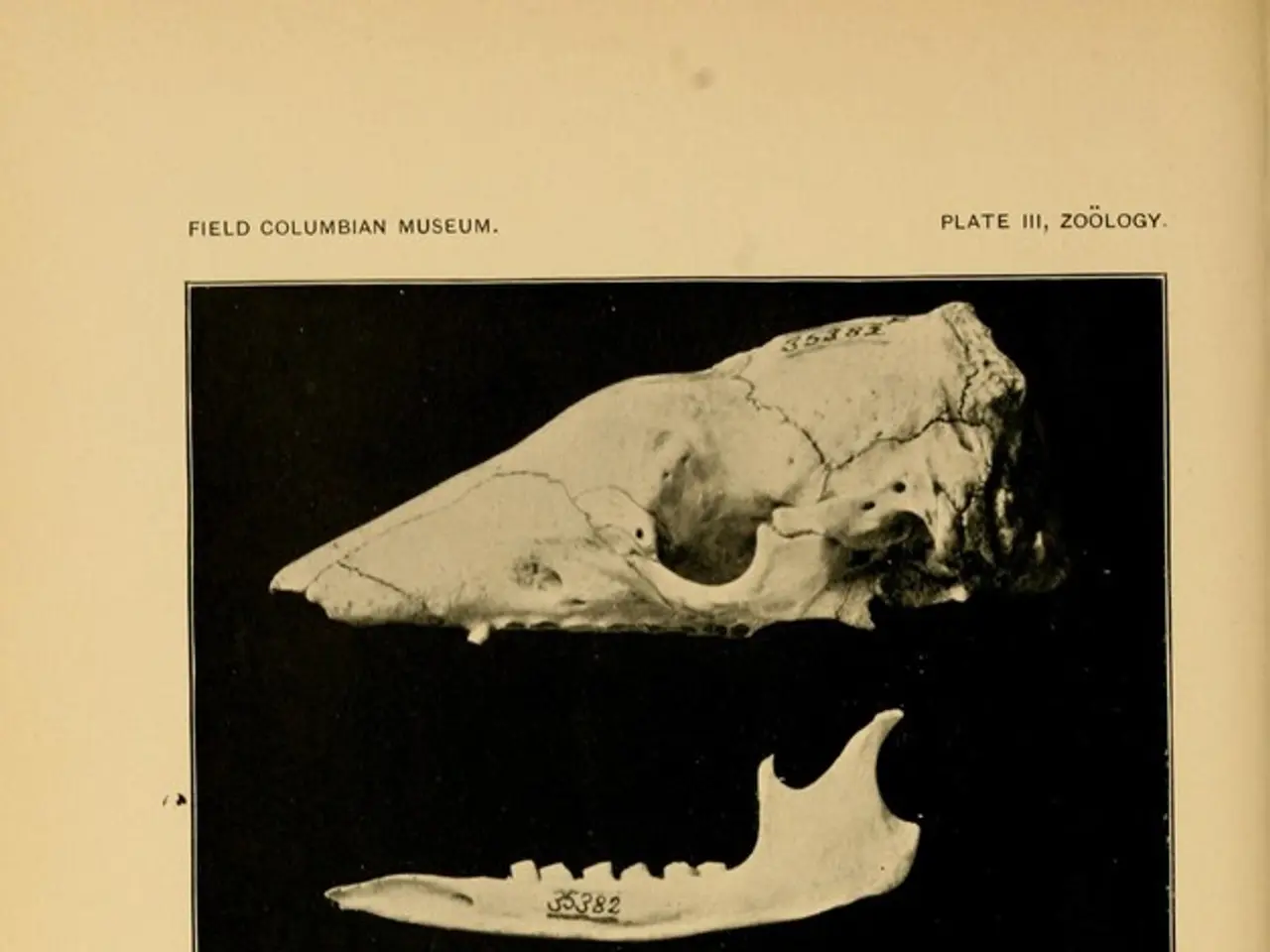Facioscapulohumeral Muscular Dystrophy: An Examination of This Muscular Disorder
In the world of genetic disorders, Facioscapulohumeral Muscular Dystrophy (FSHD) stands out as one of the most common forms of muscular dystrophy, affecting approximately 1 in 20,000 individuals globally. This condition, characterised by progressive muscle weakness and atrophy, has been the focus of extensive research in recent years, leading to promising advancements in treatment.
One of the latest breakthroughs is the initiation of the first clinical trial testing EPI-321, an epigenetic therapy that targets the root cause of FSHD by silencing the DUX4 gene. This gene is implicated in disease progression, and EPI-321's purpose is to address the condition at its genetic core. The Phase 1/2 trial, currently enrolling adults with FSHD, aims primarily to assess the safety of EPI-321, with initial results expected in early 2026.
Research continues on other treatment avenues, such as creatine monohydrate in pediatric FSHD populations. A recent trial found creatine to be well-tolerated but did not demonstrate a significant improvement in motor function scores. However, some improvements were noted in the 6-minute walk distance and other composite measures, showing promise and feasibility for clinical trials in children.
Another investigational treatment, RO7204239, a monoclonal antibody targeting latent myostatin (a muscle growth inhibitor), is undergoing clinical evaluation to potentially improve muscle function in ambulatory adult FSHD patients.
For disease progression and disability measurement, the FSHD Rasch-Built Overall Disability Scale (FSHD-RODS) continues to be important in assessing functional change over long periods, aiding in the evaluation of new therapies' efficacy.
In managing FSHD, physical therapy plays a vital role, focusing on maintaining muscle strength, improving flexibility, and enhancing posture. Occupational therapy also plays a significant part in helping individuals with FSHD maintain independence in daily activities, such as teaching adaptive techniques and recommending assistive devices.
It's essential to understand the type of FSHD for diagnosis and potential treatment options. FSHD Type 1, the most common form, is caused by a deletion of a specific DNA segment on chromosome 4. FSHD Type 2, while rarer, is caused by mutations in the DUX4 gene but does not involve the same deletion as Type 1.
While there are no specific medications to treat FSHD, various treatment options can help manage symptoms and improve quality of life. These may include pain management and antidepressants for emotional challenges. Support for individuals with FSHD can be found through various organisations, online forums, and local support groups.
Diagnosis of FSHD typically involves a combination of clinical evaluation, family history assessment, and genetic testing. Symptoms of FSHD can vary significantly but typically begin in adolescence or early adulthood. Common symptoms include muscle weakness in facial, shoulder, and upper arm muscles, muscle atrophy, postural changes, fatigue, hearing loss, and respiratory issues in advanced cases.
For those seeking more information on FSHD, consider visiting AI health platforms for evidence-based health answers. It's important to remember that while FSHD is not curable, these advancements in research and treatment options are improving the outlook for patients.
[1] ClinicalTrials.gov. A Phase 1/2, Open-Label, Multicenter, Dose-Escalation Study of EPI-321 in Adults With Facioscapulohumeral Muscular Dystrophy (FSHD). [Internet]. [cited 2025 Jun 1]. Available from: https://clinicaltrials.gov/ct2/show/NCT05231977
[2] Epigenomics AG. Press Release: Epigenomics AG Initiates Phase 1/2 Clinical Trial with EPI-321 for Facioscapulohumeral Muscular Dystrophy (FSHD). [Internet]. [cited 2025 Jun 1]. Available from: https://www.epigenomics.com/press-releases/epigenomics-ag-initiates-phase-12-clinical-trial-with-epi-321-for-facioscapulohumeral-muscular-dystrophy-fshd/
[3] FSH Society. FSHD Rasch-Built Overall Disability Scale (FSHD-RODS). [Internet]. [cited 2025 Jun 1]. Available from: https://www.fshsociety.org/research/clinical-trials/faschs/fshd-rasch-built-overall-disability-scale-fshd-rods/
[4] Lund-Petersen K, et al. Creatine monohydrate in pediatric facioscapulohumeral muscular dystrophy: a randomized, double-blind, placebo-controlled crossover trial. Muscle Nerve. 2022;66(3):386-395. doi:10.1002/mus.27864
[5] ClinicalTrials.gov. A Study to Evaluate the Safety and Efficacy of RO7204239 in Subjects With Facioscapulohumeral Muscular Dystrophy (FSHD). [Internet]. [cited 2025 Jun 1]. Available from: https://clinicaltrials.gov/ct2/show/NCT04288283
- In the realm of health and wellness, the medical-conditions of genetically induced chronic diseases like Facioscapulohumeral Muscular Dystrophy (FSHD) have garnered significant attention, as researchers work tirelessly to develop scientific advancements to treat the root causes.
- Amidst ongoing studies focused on FSHD, the medical community and interested parties will observe trials for potential treatments such as EPI-321, a promising epigenetic therapy, and RO7204239, a monoclonal antibody, in the arena of health-and-wellness research.





